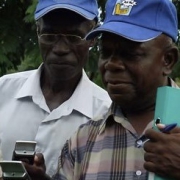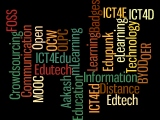Haiti’s Food Security
Haiti’s post-quake food security show signs of improvement, which may get even better with the right mix of policy priorities. Although the Caribbean nation remains more food insecure than it was prior to the January 2009 earthquake, it is 13 percent more food secure than it was in the immediate aftermath of the earthquake.
In order for Haiti to meet the needs of its 2.5 to 3.3 million people thought to be food insecure, there ought to be a raft of bold nationally-led agricultural policies and projects. Haiti is in a prime position to chart this course due to its central position in the U.S initiated Feed the Future investment plan. This country-led initiative aims to foster food security and agricultural development in a truly endogenous manner. In other words, Haitians, like other Feed the Future countries, will have ownership over the process.
Although Haiti’s agricultural productivity hinges on a myriad of bold policy initiative, in my view, two things top the agenda: 1) The establishment of a national ICT policy with key focus on agriculture; and 2) The decentralization of agricultural management and educational facilities.
Despite demonstrable economic gains worldwide from ICTs in agriculture, Haiti still lacks a national ICT policy. A clear ICT policy will provide a guide for action for multilateral agencies, national action and NGO involvement in the ICT for agriculture sector. Haitian farmers are subjected to ad hoc marketing systems, a wide range of anthropogenic shocks, natural disasters, and limited information to make sound cost-benefit analysis. A solid national ICT policy will provide a basis for Haiti and its transnational donors to tackle these challenges in a coordinated manner—eliminating the well-entrenched culture of duplication.
It is imperative that the state take a lead on this to build its credibility and bring order to a development landscape dominated by NGOs—there is one NGO for every 3, 000 Haitian. Since the 1970s , NGOs have steadily gained a toehold in the country. This is largely because of the perception of endemic corruption within the Haitian government.
While I believe that ICTs ought to be used at all three major stages in the agriculture sector –pre-cultivation, crop cultivation and harvesting, and post harvest— it is most critically needed at the first juncture, pre-cultivation, crop selection, land selection, accessing credit and itemizing when to plant. If given the information for the proper selection of the best crops to plant according to their land type, access to input and generous credit, Haitian farmers will be well positioned to make proper cost-benefit analysis and thrive.
To achieve this, the ICT policy must emphasize the use of GIS and remote sensing. GIS and remote sensing technologies may be used to gather information on soil quality and available water resources. This will aid irrigation strategies in Haiti where water management is poor. Further more, the ubiquitous nature of cellphones in Haiti means that this information may be easily disseminated. Farmers may also be alerted about where to get seeds/other inputs and access credit.
To this end, Haiti ought to decentralize its agricultural framework. Haiti has evaded decentralization proposals for decades, but as the post-quake scenario shows, new life ought to be bred into this initiative with urgency. One third of newborn babies are born underweight. Acute under nutrition among children under five years old is five percent and a third of them suffer from chronic under-nutrition.
The collaborative work being done by the Les Cayes campus of the University of Notre Dame d’Haiti (UNDH), an innovative agronomy school, attests to the importance of decentralization. “The University uses its 40 acre farm as a catalyst for outreach, to assist poor farmers in building sustainable livelihoods, to map and protect biodiversity, and to expand civic participation among the rural poor.” Through these interventions, UNDH seeks to contribute to sustainable development and governance, important factors in rebuilding Haiti after the earthquake.







































